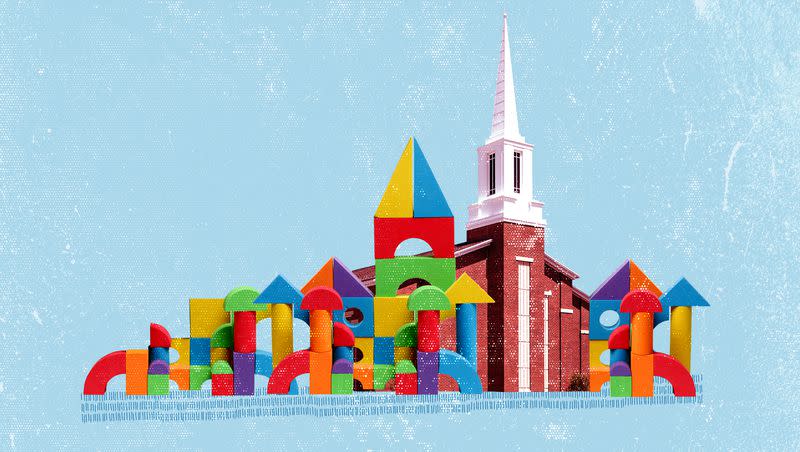Why Latter-day Saints and mainline Protestants have the highest social capital rates

On Tuesday, Utah Gov. Spencer Cox told a group of business leaders at the One Utah Summit, “I don’t want Silicon Slopes to become like Silicon Valley. I really don’t. There’s already one of those, we don’t need it. If you want to work 23 hours a day and never see your family, and change the world but not have a great life, go to San Francisco.”
Utah has been recognized as the best state in the country for its burgeoning economy and praised for its upward mobility, but could one of the reasons for the state’s success be the relationship of religion to social capital?
A new report published Wednesday by the American Enterprise Institute shows the relationship between religion and social capital — and why Latter-day Saints and mainline Protestants have the highest rate.
Related
What is social capital?
Social capital, or social cohesion, is a way of describing the health of relationships in society. According to the Institute for Social Capital, there’s disagreement on what the term means, but generally speaking, it focuses on social relationships.
The more positive these social relationships are, the more social capital there is in a particular area. Relationships cultivated through family formation, churches and institutions can positively impact the rate of social capital.
Social capital matters in terms of family formation because marriage and family can help create emotional and economic stability. It’s also important when it comes to social mobility — cross-class relationships contribute to increased flourishing.
One of the most important relationships when it comes to social capital is family. Princeton University sociologist Sara McLanahan said, “If we were asked to design a system for making sure that children’s basic needs were met, we would probably come up with something quite similar to the two-parent ideal.” This model promotes stability and can decrease economic inequality.
Which religions have the highest rate of social capital?
Using data from this index and the 2020 U.S Religion Census, the report from the American Enterprise Institute found in areas where there’s a high volume of Latter-day Saints, there’s also the highest rates of social capital. The same is true for areas with high amounts of mainline Protestants.
AEI listed factors like family unity, family interaction, social support, community health, institutional health, collective efficacy and philanthropic health. The Social Capital Index ranks Utah as having the highest rate of social capital, with particularly high rates of family unity, social support and philanthropic health. And a lot of Latter-day Saints live in Utah.
AEI’s report mentioned one of the ways The Church of Jesus Christ of Latter-day Saints creates family interaction is through family home evening. Typically held on Mondays, family home evening happens one night a week and usually includes family prayer and scripture study along with an activity. Report authors Scott Winship and Thomas O’Rourke said Latter-day Saint doctrine and institutional structure explain high rates of social capital as well.
Winship and O’Rourke said, “This structure surely contributes to the finding that over seven in 10 LDS members ‘feel closely connected to their neighborhood and the people who live there,’ according to AEI’s Daniel A. Cox. Among Americans as a whole, only half feel that closeness. LDS members are far more likely than other Americans to socialize with friends and neighbors in their homes.”
This isn’t the only report which has made this connection. The United States Congress Joint Economic Committee said the church’s history in the Beehive State positively impacted social capital. “Its thriving associational life appears to be embedded into the culture of its people, a culture that is the lasting legacy of the original Latter-day Saint pioneers who settled the state back in the 19th century.”
As for mainline Protestants, Winship and O’Rourke said the centrality of American Protestantism in culture and their role in developing core institutions contributes to their community health. They also distinguished between mainline Protestants and evangelicals.
Related
Even though evangelicals have a reputation of espousing conservative views on marriage, mainline Protestants tend to be more conservative in behavioral marital trends when it comes to divorce and premarital cohabitation. Winship and O’Rourke said, “But across the nearly 50 years, evangelicals are substantially more likely to embrace traditional family values in theory, even as they are slightly more likely not to actually carry out those ethics in their relationships.”
When it comes to increasing rates of social capital, tight-knit communities, healthy institutions and strong families provide the structure needed to achieve that goal, as evidenced by religious groups like mainline Protestants and Latter-day Saints.

